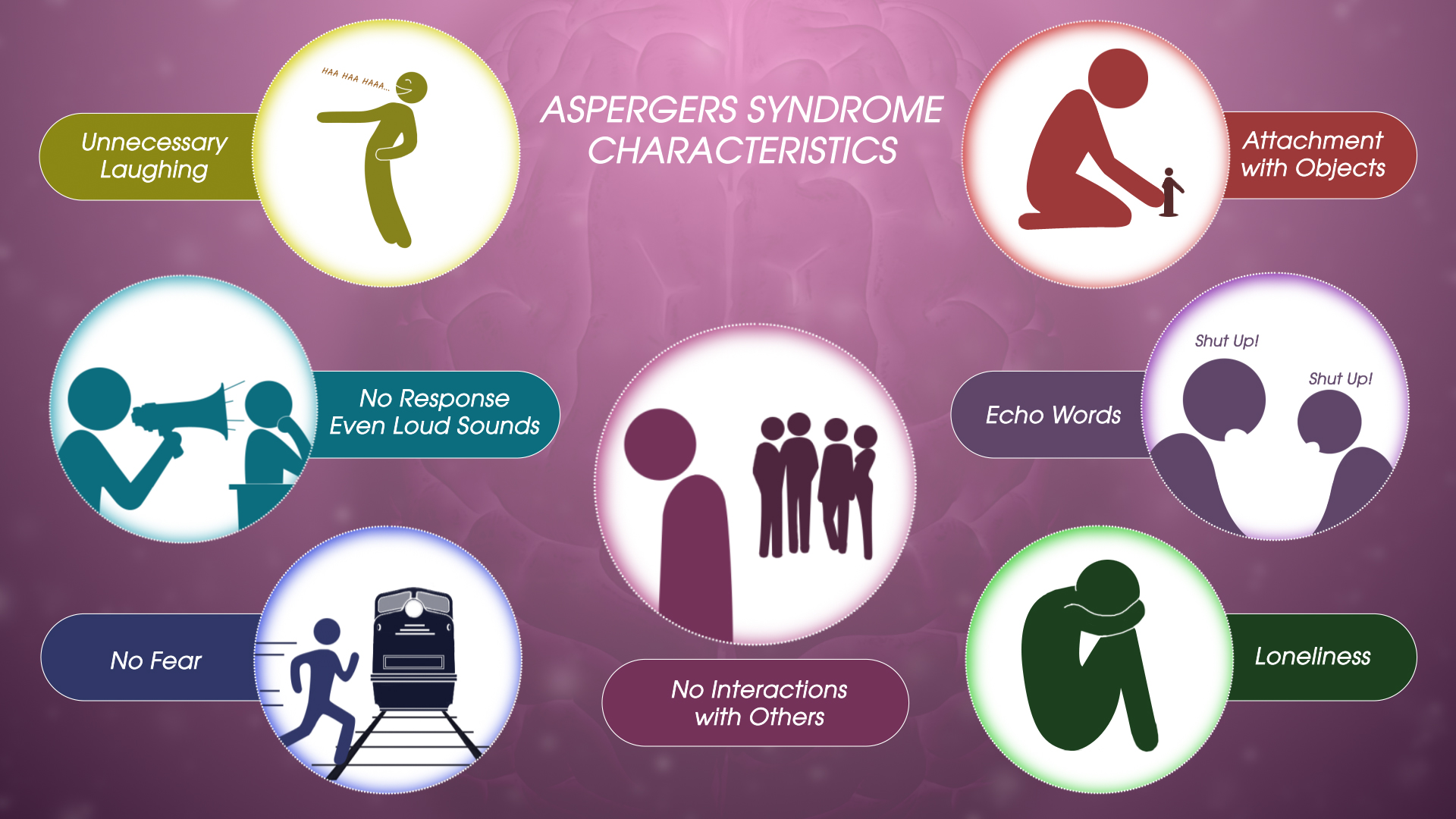
What is Asperger's syndrome? Asperger’s syndrome (also known as Asperger’s Disorder) was first described in the 1940s by Viennese pediatrician Hans Asperger, who observed autism-like behaviors and difficulties with social and communication skills in boys who had normal intelligence and language development. Many professionals felt Asperger’s syndrome was simply a milder form of autism and used the term “high-functioning autism” to describe these individuals. Uta Frith, a professor at the Institute of Cognitive Neuroscience of University College London and editor of Autism and Asperger Syndrome, describes individuals with Asperger’s as “having a dash of autism.”
Asperger’s syndrome was a unique diagnosis listed in the American Psychiatric Association’s Diagnosis and Statistical Manual of Mental Disorders (DSM) until 2013, when all forms of autism were combined under one umbrella diagnosis, autism spectrum disorder (ASD).
People with Asperger’s syndrome may have high intelligence and better than average verbal skills. Asperger’s is considered a high-functioning form of autism.
How common is Asperger syndrome?
Autism, including Asperger syndrome, is much more common than most people think. There are around 700,000 autistic people in the UK – that's more than 1 in 100. People with Asperger syndrome come from all nationalities and cultural, religious and social backgrounds, although it appears to affect more men than women.
How do people with Asperger syndrome see the world?
Some people with Asperger syndrome say the world feels overwhelming and this can cause them considerable anxiety.
In particular, understanding and relating to other people, and taking part in everyday family, school, work and social life, can be harder. Other people appear to know, intuitively, how to communicate and interact with each other, yet can also struggle to build rapport with people with Asperger syndrome. People with Asperger syndrome may wonder why they are 'different' and feel their social differences mean people don’t understand them.
Emotional and behavioral symptoms
- Repetitive behaviors: Engaging in repetitive behavior is a common symptom of Autism Spectrum Disorder (ASD). This may include doing the same thing every morning before work, spinning something a certain number of times, or opening a door a certain way. Just because you engage in this type of behavior does not mean that you have Autism Spectrum — other disorders can result in these behaviors, as well.
- Inability to understand emotional issues: People with Autism Spectrum (AS) may have difficulties when asked to interpret social or emotional issues, such as grief or frustration. Nonliteral problems — that is, things that cannot be seen — may evade your logical ways of thinking.
- First-person focus: Adults with AS may struggle to see the world from another person’s perspective. You may have a hard time reacting to actions, words, and behaviors with empathy or concern.
- Exaggerated emotional response: While not always intentional, adults with AS may struggle to cope with emotional situations, feelings of frustration, or changes in pattern. This may lead to emotional outbursts.
- Abnormal response to sensory stimuli: This can be hypersensitivity (over-sensitivity) or hyposensitivity (under-sensitivity) to sensations. Examples include excessively touching people or objects, preferring to be in the dark, or deliberately smelling objects.
Communication symptoms
- Social difficulties: People with AS may struggle with social interactions. You may not be able to carry on “small talk” conversations.
- Speech difficulties: It’s not unusual for adults with AS to have “stiff” (sometimes referred to as “robotic”) or repetitive speech. You may also have difficulties moderating your voice for environments. For example, you may not lower your voice in a church or library.
- Exceptional verbal skills: Adults with AS may have typical to strong verbal skills. This may translate to greater vocabulary skills, especially in areas of interest.
- Below-average nonverbal skills: Adults with AS may not pick up on nonverbal cues from others, such as hand gestures, facial expressions, or body language.
- Lack of eye contact: When talking to another person, you may not make eye contact.
Other symptoms
- Clumsiness: Motor coordination difficulties are significantly more common in adults with ASD. These motor skill issues may show up as difficulty performing tasks like sitting or walking correctly. Fine motor skills, like tying shoes or opening an envelope, may also be affected.
- Obsession: It’s not uncommon for people to have hyperfocus as a symptom of AS. It’s usually toward a specific topic. They may have a deep understanding and vast vocabulary related to this topic. They may also insist on talking about it when engaging with others.
How to Diagnose
The characteristics of Asperger syndrome vary from one person to another, although there are some key traits that autistic people share. These are:
- persistent difficulties with or differences in social communication and social interaction
- restricted and repetitive patterns of behaviours, activities or interests since early childhood, to the extent that these impact negatively on day to day life.
The diagnosis process usually involves a multi-disciplinary diagnostic team - often including a speech and language therapist, paediatrician, psychiatrist and/or psychologist.
Because Asperger syndrome varies widely from person to person, making a diagnosis can be difficult. It is often diagnosed later in children than autism and sometimes symptoms may not be recognised and diagnosed until adulthood.
How is Asperger’s treated in adults?
There’s no cure for Asperger’s syndrome. However, these treatments may help adults with autism cope with symptoms and difficulties.
- Cognitive behavioral therapy: A therapist can help you cope with some of the emotional effects of autism, such as social isolation and anxiety. They can also help you learn new social skills so engaging with others feels easier and less frustrating.
- Speech therapy.:A speech pathologist can work with you to learn voice control and modulation.
- Vocational therapy: Most adults with autism can and do maintain full-time, successful jobs. However, some people may face career-related difficulties. A vocational therapist can help you find solutions for the issues you face at work so that you can continue to be successful.
- Medications: In adulthood, prescription drugs may be used to treat individual symptoms, such as anxiety or hyperactivity. Some healthcare providers may also prescribe medications to try to reduce symptoms of AS. These medications include stimulants, antipsychotics, and serotonin reuptake inhibitors (SSRIs).
At present, there is no “cure.” By learning to cope with the symptoms and pick up on social cues, a child can learn to overcome some of the challenges he faces. With help, parents can learn how to best support their child. People with Asperger’s Syndrome can do well in school and go on to be contributing members of their community.




